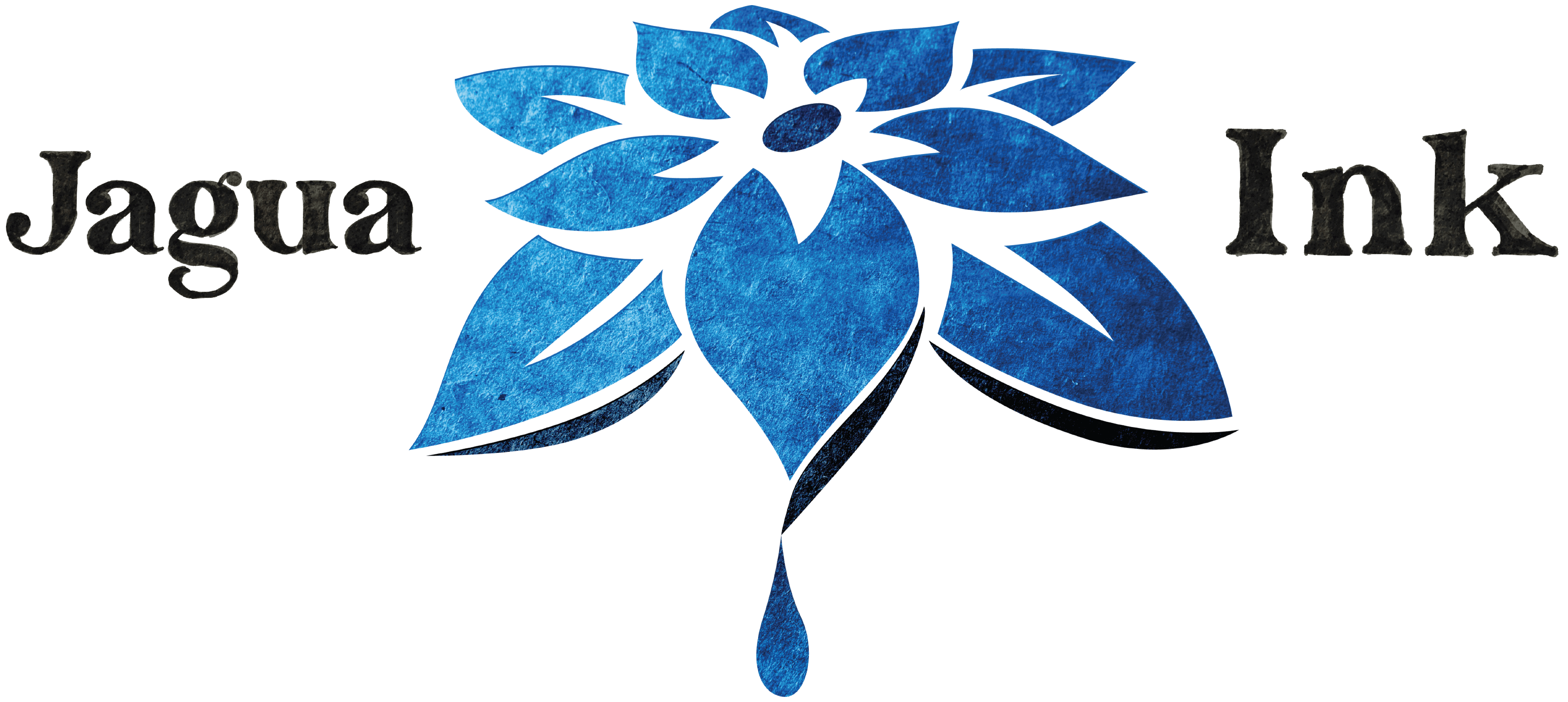Jagua Ink Environmental and Processing Policy
These environmental and processing policy are for Jagua ink and the website www.jaguaink.com.
At Jagua Ink, our commitment to sustainability and product quality is reflected in our meticulous Environmental and Processing Policy. We take pride in sourcing the finest wild Jagua fruits while ensuring minimal environmental impact.
Sourcing and Harvesting:
- WhatsApp Group for Suppliers:
- We have established a dedicated WhatsApp group consisting of suppliers from various micro-ecosystems within the rainforest. These diverse climates yield year-round fruit production, guaranteeing a continuous supply for our processing needs.
- We have established a dedicated WhatsApp group consisting of suppliers from various micro-ecosystems within the rainforest. These diverse climates yield year-round fruit production, guaranteeing a continuous supply for our processing needs.
Inspection and Approval Process:
- Supplier Notification:
- The supplier is informed that we need fruit. This is typically done through our dedicated WhatsApp group.
- Sending Visuals:
- The supplier sends detailed images or videos of the Jagua fruits while they are still on the tree. This provides us with a clear view of the fruit’s condition and its surroundings. They also will send us the tree/s GPS coordinates for our chain supply database.
- Quality Inspection:
- Our quality control team carefully analyzes the visuals to assess the fruit’s maturity, size, color, and overall health. Once the fruit is approved, the supplier is required to send another set of visuals showing the fruit cut in half. This allows us to inspect the fruit’s internal quality, such as its ripeness, color, and texture.
- Harvest Readiness Confirmation:
- If the fruit meets our quality standards, we confirm that it is ready for harvest. If not, we provide feedback to the supplier and may ask for additional visuals or information.
- Final Approval for Processing:
- If the harvested fruit passes our internal quality assessment, we give the final approval for the fruit to be transported to our processing facility.
- Transportation:
- The supplier then arranges for the fruit to be delivered to our facility within 24 hours of harvest to ensure freshness and quality.
- Harvesting Guidelines:
- Following our approval, the supplier assembles a team to harvest the fruit, ensuring it reaches our facility within 24 hours to maintain freshness and quality.
- On-Site Inspection:
- Once the fruit arrives at our facility, our team conducts another round of inspections to ensure that the fruit has not been damaged during transportation and still meets our quality standards.
- Policy Compliance Verification:
- To verify compliance with our sustainability policy, suppliers must provide photos of the harvested tree. This is essential to confirm that at least 20% of the fruit remains for wildlife and ecosystem balance. Additionally, it ensures the tree remains uncut, preventing unnecessary deforestation. In the wake of an incident in 2010, where we discovered a team had felled a tree to expedite the harvesting process, we felt compelled to institute our policy. To bolster our commitment to sustainable practices, we initiated a comprehensive study exploring the ramifications of tree pruning as an alternative method. The findings revealed that while a typical wild Jagua tree yields 800 to 1200 fruits per harvest, a pruned tree requires approximately two years to fully recuperate. However, post-recovery, the pruned tree remarkably produces twice the fruit concentration of a standard harvest, thereby significantly diminishing our ecological footprint.
Processing:
- Factory Sanitization:
- Upon arrival at our facility, the Jagua team meticulously disinfects the factory to maintain a clean and hygienic processing environment.
- Initial Weighing and Selection:
- The fruit undergoes an initial weighing and selection process, where any unsuitable or waste material is separated and subsequently composted.
- Washing and Secondary Selection:
- During the washing stage, a second selection process is conducted to identify and remove any damaged or rotten fruit, ensuring only the finest quality fruit proceeds to the next stage.
- Peeling:
- Post-washing, the fruit is peeled to reduce the risk of allergic reactions in the final product. This step is crucial as the peel has been known to irritate, and removing it eliminates this risk.
- Juicing or Slicing for Dehydration:
- Depending on the desired final product, the peeled fruit either enters the juicing process or is sliced in preparation for dehydration.
- Energy-Efficient Dehydration:
- Our energy-efficient dehydration process is central to our commitment to sustainability. We employ a cutting-edge heat pump dehydration system that uses approximately 45% less energy than conventional forced-air gas dryers. This eco-conscious system ingeniously recycles heat within a sealed loop, while an air conditioning coil extracts moisture from the air. This innovative approach markedly minimizes production waste, conserves energy, and substantially reduces our environmental footprint.
- While it is true that this method requires more time to dry the product, we firmly believe that the considerable energy savings and low environmental impact are invaluable. At Jagua Ink, we are dedicated to pioneering sustainable practices that align with our core values, even if it means deviating from the conventional, faster methods. This is a testament to our unwavering commitment to safeguarding the planet while delivering high-quality products to our customers.
